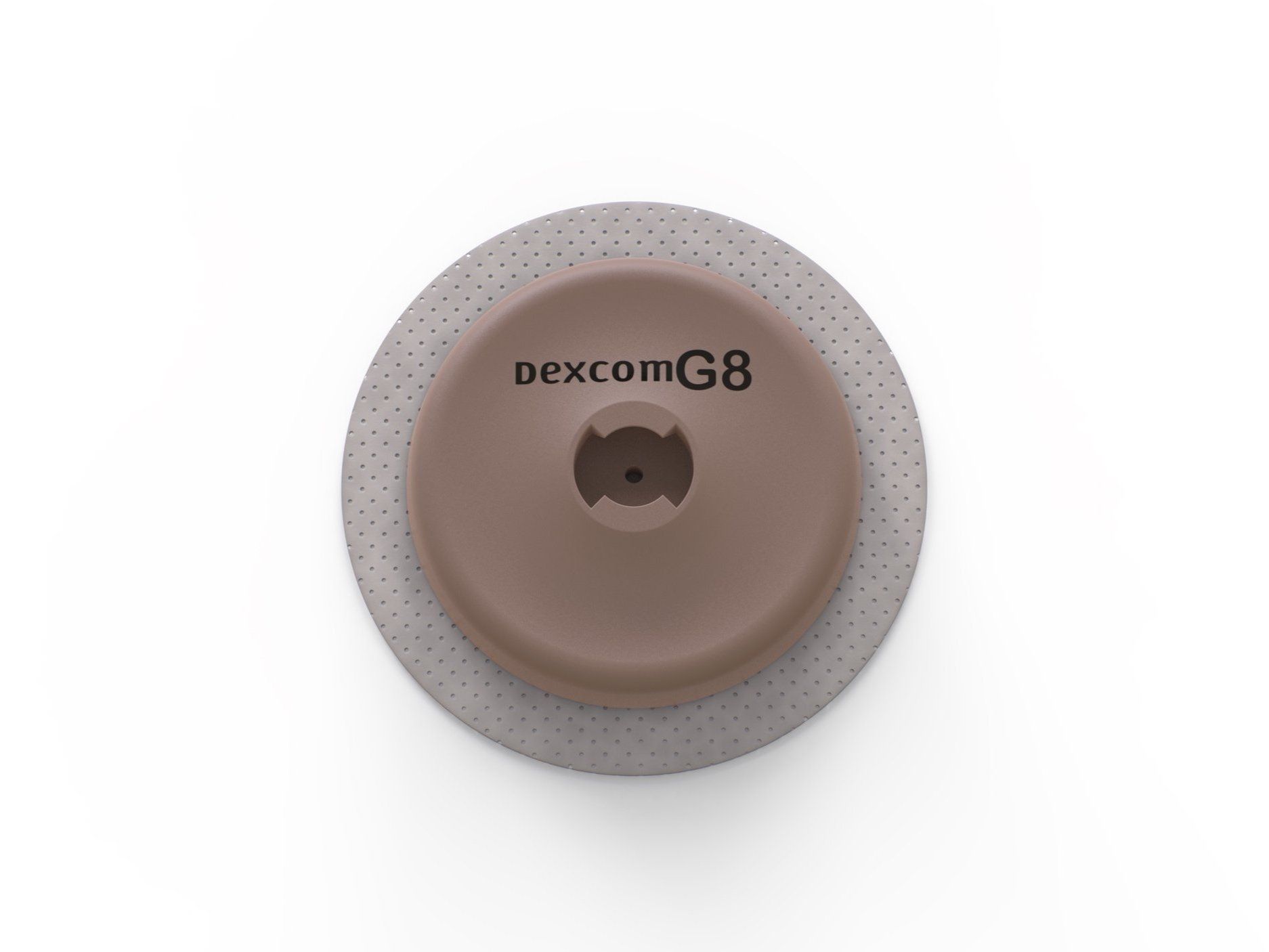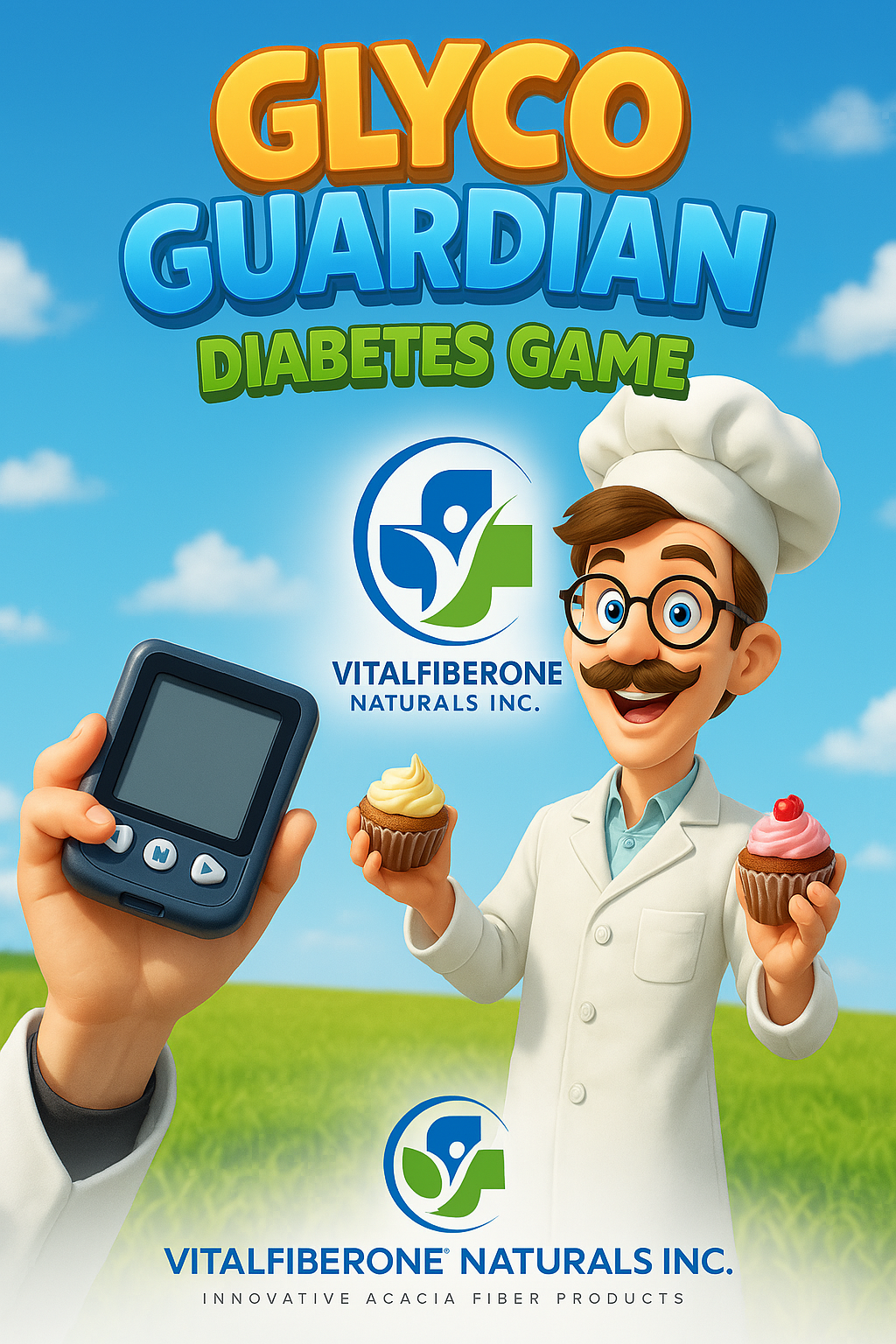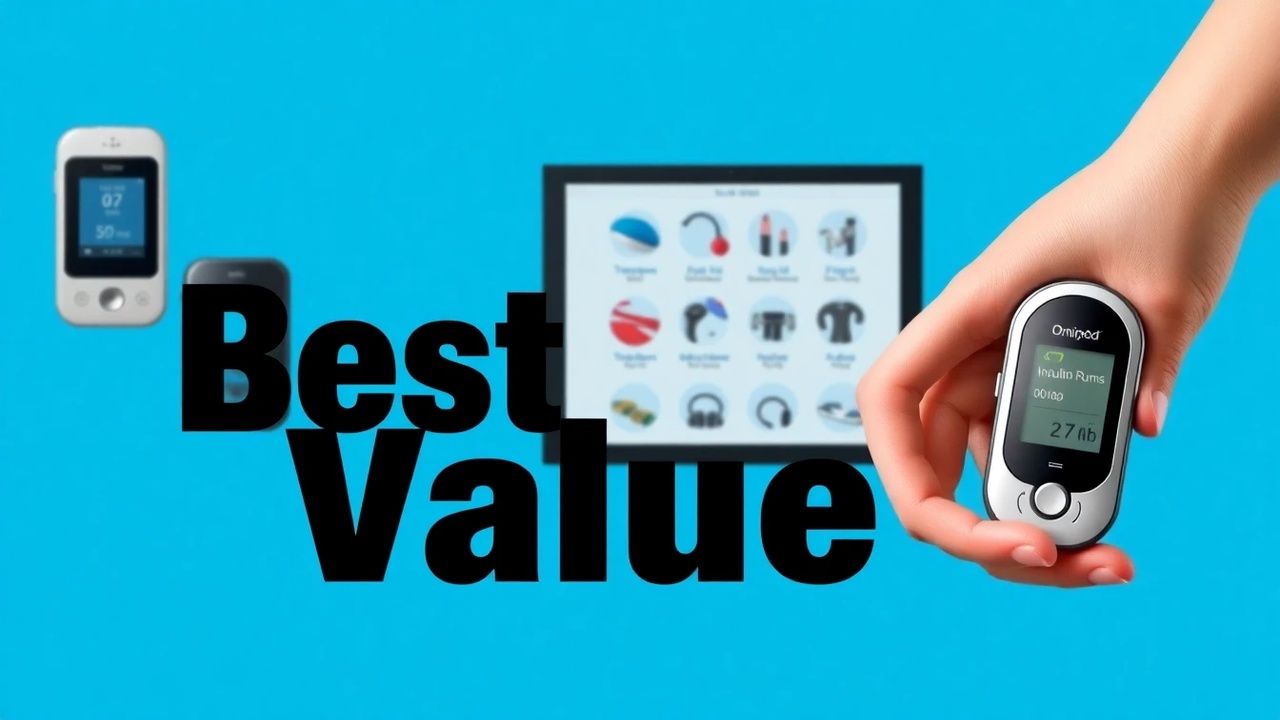Mastering Insulin Injection: Step-by-Step Techniques & Common Mistakes
VitalFiberOne Naturals Inc. • May 26, 2025
Mastering Insulin Injection: Proven Techniques & Common Mistakes to Avoid

Managing diabetes effectively requires precise insulin injections to control blood sugar levels. Proper insulin administration ensures better glucose management, reduces complications, and enhances quality of life. This comprehensive guide covers essential insulin injection techniques, common mistakes, and practical tips to help you administer insulin safely and efficiently, positioning VitalFiberOne as your trusted partner in diabetes management solutions.
Understanding Insulin and Its Importance
Insulin is a hormone produced by the pancreas that regulates blood sugar levels. For individuals with diabetes, the body either doesn't produce enough insulin (Type 1 diabetes) or cannot effectively use insulin produced (Type 2 diabetes), necessitating external insulin injections.
Regular and accurate insulin injections prevent complications such as hyperglycemia (high blood sugar) and hypoglycemia (low blood sugar), enhancing overall health and well-being.
Step-by-Step Guide for Correct Insulin Injection
1. Gather Necessary Supplies
Ensure you have all required materials ready:
Insulin vial or pen
Sterile insulin syringes or pen needles
Alcohol swabs
Sharps container
Glucose monitor
2. Check Insulin Type and Expiry Date
Always confirm the insulin type, dose, and expiry date before use. Using expired insulin can severely impact effectiveness.
3. Wash Your Hands
Proper hygiene is critical. Thoroughly wash your hands with soap and warm water, drying them completely before handling insulin or injection equipment.
4. Inspect Insulin
For clear insulin, check for clarity. Cloudy insulin types (like intermediate-acting insulin) should be gently rolled—not shaken—to mix evenly.
5. Prime Your Insulin Pen or Draw Insulin into Syringe
If using a pen, prime by dialing two units and pressing until insulin appears at the needle tip. If using a vial, draw air equal to your dose into the syringe, inject this into the vial, then invert and draw the prescribed dose.
6. Choose the Injection Site
Common injection sites include:
Abdomen (preferred for quickest absorption)
Upper thighs
Outer upper arms
Buttocks
Rotate injection sites regularly to avoid lipodystrophy (skin thickening or indentation).
7. Prepare Injection Site
Clean the selected area with an alcohol swab, allowing the area to dry completely before injection.
8. Perform the Injection
Hold the syringe or pen like a pencil.
Pinch the skin lightly to form a small fold.
Insert the needle at a 90-degree angle (or 45-degree angle if advised).
Inject insulin steadily.
Wait a few seconds before removing the needle to ensure complete insulin delivery.
9. Dispose of Needles Properly
Immediately discard used needles into a sharps container. Never reuse or share needles to prevent infection.
Common Mistakes to Avoid During Insulin Injection
Mistake 1: Reusing Needles
Reusing needles can dull the tip, causing pain and infection risks. Always use a new, sterile needle for each injection.
Mistake 2: Incorrect Insulin Storage
Insulin should be refrigerated until opened, then stored at room temperature (avoiding direct sunlight or extreme temperatures). Improper storage diminishes insulin potency.
Mistake 3: Skipping Site Rotation
Injecting insulin repeatedly into the same area causes lipodystrophy, impacting insulin absorption and efficacy. Rotate injection sites consistently.
Mistake 4: Incorrect Dosage
Accurate dosing is vital. Double-check your prescribed dose and confirm the correct insulin concentration to avoid serious health risks.
Mistake 5: Injecting Cold Insulin
Cold insulin injections are painful and slow absorption. Allow refrigerated insulin to reach room temperature before injecting.
Mistake 6: Incorrect Injection Angle
Ensure correct needle angle—typically 90 degrees for most individuals or 45 degrees if advised by your healthcare provider—to maximize effectiveness.
Mistake 7: Not Checking Blood Sugar Levels
Always monitor your glucose levels regularly to adjust insulin dosages accurately, preventing hyperglycemia or hypoglycemia.
Practical Tips for Mastering Insulin Injection
Tip 1: Set a Consistent Injection Schedule
Regular injections at consistent times daily enhance glucose control. Maintain a routine for best results.
Tip 2: Stay Relaxed During Injection
Tension makes injections uncomfortable. Practice deep breathing techniques to relax muscles during administration.
Tip 3: Educate Yourself Continuously
Attend diabetes education sessions, webinars, or consult VitalFiberOne resources regularly to stay updated on injection techniques and diabetes management strategies.
Tip 4: Use Injection Aids
Injection aids like insulin pens, magnifiers, or automated devices can simplify insulin administration, particularly beneficial for elderly or visually impaired individuals.
How VitalFiberOne Supports Your Diabetes Management
VitalFiberOne is committed to supporting your diabetes management journey with:
Premium quality diabetes care products
Informative resources, e-books, and audiobooks
Innovative diabetes management tools and applications
Our products, such as the VitalFiberOne Acacia Fiber range, are designed to complement your diabetes care, supporting optimal nutrition and improved glucose control.
Conclusion
Mastering insulin injections is crucial in achieving effective diabetes management. By adhering to proper techniques, avoiding common mistakes, and leveraging practical tips, you enhance insulin efficacy and overall health outcomes. With comprehensive support from VitalFiberOne, managing diabetes becomes simpler, safer, and more effective.
Trust VitalFiberOne to guide you through your diabetes care journey, ensuring better health, improved well-being, and a fulfilling lifestyle.

Continuous Glucose Monitors (CGMs) have transformed diabetes management by providing real-time glucose data, reducing the need for fingersticks, and enabling proactive treatment decisions. Among the leading CGMs are the Dexcom G8 and Medtronic Guardian 4, each offering unique features tailored to different user needs. This comprehensive comparison delves into their specifications, usability, accuracy, and integration capabilities to help you make an informed choice. Dexcom G8: Next-Generation Simplicity and Integration The Dexcom G8 represents Dexcom's latest advancement in CGM technology, building upon the strengths of its predecessors. Key Features Sensor Wear Time: 14 days Warm-Up Period: 30 minutes Calibration: Factory-calibrated; no fingersticks required Accuracy: Mean Absolute Relative Difference (MARD) of 8.2% Integration: Compatible with various insulin delivery systems and health apps Alerts: Customizable high and low glucose alerts Data Sharing: Real-time data sharing with caregivers via the Dexcom Follow app integrateddiabetes.com The G8's streamlined design and direct integration with smart devices, including Apple Watch, offer users a seamless experience. Its improved accuracy and reduced warm-up time enhance user confidence and convenience. Dexcom Medtronic Guardian 4: Precision and Pump Integration The Guardian 4 sensor is Medtronic's latest CGM, designed to work in tandem with their insulin pump systems, particularly the MiniMed™ 780G. Key Features Sensor Wear Time: 7 days Warm-Up Period: 2 hours Calibration: No fingersticks required Accuracy: MARD of 10.6% Integration: Seamless integration with Medtronic insulin pumps Alerts: Predictive alerts for impending highs and lows Data Sharing: Data viewable via CareLink™ Connect app The Guardian 4's strength lies in its integration with Medtronic's insulin pumps, enabling automated insulin delivery adjustments based on real-time glucose readings. This closed-loop system aims to maintain glucose levels within the target range more effectively. Side-by-Side Comparison Feature Dexcom G8 Medtronic Guardian 4 Sensor Wear Time 14 days 7 days Warm-Up Period 30 minutes 2 hours Calibration No fingersticks required No fingersticks required Accuracy (MARD) 8.2% % 10.6% Integration Multiple insulin delivery systems Medtronic insulin pumps only Alerts Customizable alerts Predictive alerts Data Sharing Dexcom Follow app CareLink™ Connect app Pros and Cons Dexcom G8 Pros: Longer sensor wear time reduces the frequency of replacements. Shorter warm-up period allows for quicker data availability. High accuracy enhances trust in glucose readings. Broad integration with various devices and apps offers flexibility. Cons: Integration with insulin pumps may require additional setup. Availability may vary by region and healthcare provider. Medtronic Guardian 4 Pros: Designed for seamless use with Medtronic insulin pumps, enabling automated insulin delivery. Predictive alerts provide early warnings for glucose excursions. No calibration required simplifies daily use. Cons: Shorter sensor lifespan necessitates more frequent replacements. Longer warm-up period delays initial data availability. Limited integration with non-Medtronic devices reduces flexibility. Dexcom User Experience and Testimonials Users of the Dexcom G8 appreciate its ease of use, accuracy, and the convenience of real-time data on their smart devices. The ability to share data with caregivers offers peace of mind, especially for parents of children with diabetes. Medtronic Guardian 4 users value the integration with Medtronic insulin pumps, noting improved glucose control and reduced manual interventions. However, some users mention the shorter sensor lifespan as a drawback. Conclusion Both the Dexcom G8 and Medtronic Guardian 4 offer significant benefits for diabetes management, but they cater to different user preferences and needs. Choose Dexcom G8 if you prioritize longer sensor wear time, quick setup, high accuracy, and flexibility in device integration. Choose Medtronic Guardian 4 if you are using or plan to use a Medtronic insulin pump and desire a fully integrated system with automated insulin delivery. Your choice should align with your lifestyle, treatment goals, and the devices you currently use or plan to use. Have you used the Dexcom G8 or Medtronic Guardian 4? Share your experiences and insights in the comments below. For more in-depth reviews and comparisons of diabetes management technologies, explore our other blog posts.

Learn how to manage diabetes with ease using VitalFiberOne™, a revolutionary solution that makes living with diabetes simple and stress-free. In this blog, we'll introduce you to a fun and interactive world education game that teaches you how to control your blood sugar levels, improve your overall health, and live a happy life with diabetes. Discover the benefits of VitalFiberOne™ and how it can help you take charge of your diabetes management.

Take control of your diabetes management with Glyco Guardian, the ultimate solution for a healthier you! In this blog, we'll show you how to make managing your diabetes easy, convenient, and most importantly, FREE! With Glyco Guardian, you'll have access to a comprehensive platform that helps you track your blood sugar levels, monitor your diet, and stay on top of your medication. Say goodbye to tedious paperwork and hello to a more streamlined approach to managing your diabetes. Join us as we explore the benefits of Glyco Guardian and discover how it can make a significant difference in your life.









